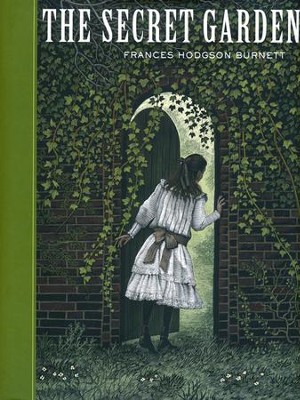 Published in 1911, Frances Hodgson Burnett’s “The Secret Garden” has been a perennial classic of children’s literature for over a century, inspiring multiple stage and film adaptations, including the popular and acclaimed Hollywood movie version from 1993. And though I remember seeing the 1987 television movie version as a kid, I had never read the book until now.
Published in 1911, Frances Hodgson Burnett’s “The Secret Garden” has been a perennial classic of children’s literature for over a century, inspiring multiple stage and film adaptations, including the popular and acclaimed Hollywood movie version from 1993. And though I remember seeing the 1987 television movie version as a kid, I had never read the book until now.
For those who haven’t read it before, “The Secret Garden” centers on 10-year-old Mary Lennox, born in colonial India to wealthy British parents who never wanted her and have mostly ignored her. Because she has been cared for by servants who cater to her wants and needs, she has become spoiled, demanding and self-centered. And when her parents die of cholera during an epidemic, the servants end up abandoning her. After being eventually discovered by British soldiers, Mary is sent to live with her uncle Archibald in England, who lives in a large house on the Yorkshire Moors called Misselthwaite Manor.
In the way that she writes Mary initially, Burnett doesn’t sugarcoat the fact that she is rude and unpleasant to almost everyone around her. In the opening passage of the book, she writes that “everybody said she was the most disagreeable-looking child ever seen,” always wearing “a sour expression.” This honesty about Mary’s personality, which has more to do with her parents’ neglect and less to do with her own true nature, makes her transformation into someone capable of goodness and generosity even more poignant.
Once arriving in her new home, Mary begins to explore the large house and its grounds, where she finds a private, walled garden with a hidden door. As Mary, who was sickly when she arrived, begins feeling stronger, her mood improves and she befriends a robin that inhabits the grounds. While following the robin one day, she finds a patch of freshly turned-up earth where the bird is digging and spots a brass key buried underneath, which turns out to open the door to the secret garden. It’s because of this garden, and Mary’s discovery of it, that she and her cousin Colin and her uncle Archibald all undergo a transformation that opens their hearts.
This is a moving and well-written novel that’s suitable for any age group, and that serves as a reminder, in this cold season of short days and long nights, of the healing power of nature, friendship, kindness and curiosity.




